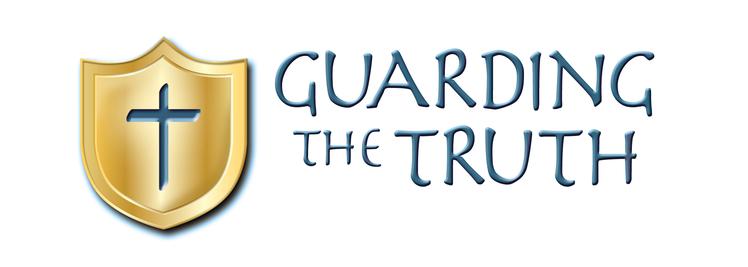We Believe...
The Bible is composed of the 66 books of the Old and New Testaments. Scripture originated with God, and it was given through the instrumentality of chosen men. Scripture speaks with the authority of God and reflects the background, styles, and vocabularies of the human authors. The Scriptures are infallible and without error in the original writings. They are the unique, full, and final authority on all matters of faith and practice. There is no other writing similarly inspired by God. 2 Timothy 3:16-17; Isaiah 40:8; Revelation 22:18-19
©2015 Christian Resource Center. All rights reserved
There is one true and holy God, eternally existing in three persons -
Father, Son, and Holy Spirit - each of whom possesses equally all the attributes of deity and characteristics of personality. Matthew 28:19; 1 Corinthians 8:6; John 15:26; Genesis 1:26
In the beginning, God created the world, and all the things in it, from nothing.
By His sovereign power, He continues to sustain His creation and to fulfill His redemptive purposes. Hebrews 11:3; Genesis 1:1-31
Jesus is the eternal second person of the Trinity, who became human by the miraculous conception of the Holy Spirit, being born of a virgin. He lived on earth for a short time as fully God and fully man. Luke 1:26-27
Kinsman Redeemer
He lived a life of perfect obedience to the Father and voluntarily atoned for the sins of all by dying on the cross as their substitute. He thus satisfied justice as required by the Law, serving as the Kinsman Redeemer for man, and accomplished salvation for all who trust in Him alone.
Ruth 3:1-18, 4:1-22; Psalm 51:5; Romans 6:23; 2 Corinthians 5:21
Risen Lord
He rose from the dead in the same body, though glorified, in which he lived and died. He ascended into Heaven and sat down at the right hand of the Father, where He, the only mediator between God and Man, continually makes intercession for His own. He shall come again to Earth, personally and visibly,
to consummate history and the eternal plan of God.
1 Corinthians 15:3-4; Mark 16:9; Hebrews 7:25; Romans 8:26
Holy Spirit
The Holy Spirit, the third person of the Trinity, was sent into the world by the Father and the Son to enlighten the mind of sinners, awaken in them recognition for their need of a Savior, and regenerate them. John 14: 15-17, 26; Romans 8:26; Acts 2:38
Indwelling of the Spirit
At the point of salvation, the Holy Spirit permanently indwells every believer to become the source of assurance, strength, and wisdom, and uniquely endows each believer with gifts for the building up of His people. The Holy Spirit guides believers in understanding and applying the Scriptures. His power and control are appropriated by faith, making it possible for the believer to lead a life of Christ-like character and to bear fruit to the glory of the Father. John 15:26; 1 Peter 4:10-11; 1 Corinthians 12:4-11; Romans 12:6-8
Human Nature
Salvation is the central purpose of God's revelation in Scripture. Originally created in God's image to have fellowship with God, Man defied God, choosing to go His independent way. He became sinful, suffering alienation from God and the corruption of his human nature. John 3:16; Genesis 1:27; Romans 3:10; Psalm 51:5; Mark 7:20-23
Saving Grace
The fall of mankind took place at the beginning of human history, and all individuals since have suffered these consequences and are in the need of the saving grace of God. The salvation of mankind is wholly a work of God's free grace, not the result in whole or part of human works or goodness, and must be personally appropriated by repentance and faith in Jesus Christ. The fact that God has begin and is continuing work in an individual's life is demonstrated by that person's perseverance in the faith. Ephesians 2:8-9; Titus 2:11; Romans 6:1-23; Romans 3:23
Eternal Life
The eternal destiny of each person is determined by his or her choice to receive or reject Christ while living on Earth. For all mankind, there will be a resurrection of the body into the spiritual world and a judgment that will determine the fate of each individual. Unbelievers will be separated from God into everlasting condemnation, God's judgment revealing His just response to their rejections of God. Believers will be received into eternal communion with God and will be rewarded for works done in this life. John 3:16; Romans 6:23; 2 Corinthians 4:5, 5:10; 2 Timothy 4:8
The Church
Believers who accept the redemptive work of Jesus Christ, appropriating it into their lives by faith, become members of His body, the Church. There is one true Church universal, comprised of all those who acknowledge Jesus Christ as Savior and Lord. Ephesians 2:20-22; Matthew 6:18; Hebrews 10:24-25
Role of the Believer
Believers should gather together for worship, prayer, teaching of the Word, and observance of baptism and communion as ordinances established by Jesus Christ. Believers should serve the Lord through the development and use of talents and gifts to benefit the body and as outreach to the world. Wherever God's people meet regularly in obedience to this command, there is a local expression of the Church. Colossians 3:16; Hebrews 10:25
Authority of Scripture
Scripture is the final authority in all matters of faith and practice. We recognize that individual organizations cannot bind the conscience in individual areas where Scripture is silent. 2 Timothy 3:16-17; Matthew 5:17-18; John 10:35; Galatians 5:1; 2 Corinthians 3:17
Evangelizing and Discipling the Next Generations
The Bible
The Trinity
Creation
The Virgin Birth
Guarding the Truth is the teaching ministry of the Christian Resource Center
©2015 Christian Resource Center. All rights reserved
PO Box 676 Robinson, IL 62454
1. 217. 493. 6151
